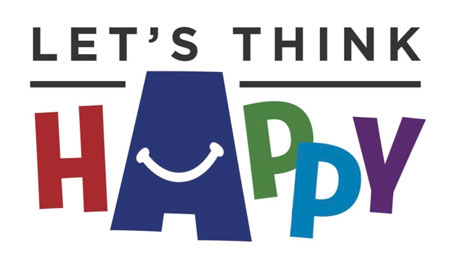Do you know that you need help in some capacity but aren’t sure how? Maybe you have struggled with bouts of depression, the anxiety of overwhelming feelings that are hard to process or control. While many people have a bit of shame associated with reaching out for help, it is a sign of strength. Knowing you need help is one thing. Admitting you need it to yourself and doing something about it is another. First off, welcome to Let’s Think Happy. Here, we have many resources for you to look through. If you need immediate assistance and are overwhelmed and need someone to talk to, we have listed resources on this site that can offer that. You have many free options listed, ensuring that everyone has someone immediately.
Long Term Help
But, if you are looking for more long-term care, something that will help you change, develop and grow as a person, you will probably want to look into ongoing therapy. While the resources are perfect for those immediate situations, ongoing therapy works to help you develop into a happier and more stable you. Tools and things are offered to help you look inside to find out what is causing these issues, what you can do to change certain things, and how to develop and grow as a person in a healthy manner. Sounds pretty amazing, right?
The first step is to take our online quiz. This isn’t some quiz you take on social media to find out if the stars are aligned for you. This is a scientific-style quiz developed by professionals to ensure that you seek the right type of therapist for your goals. If you are not quite sure what your goal is, that’s okay. Sit down and figure out what you would like to change. Do you want to be happier? Maybe you struggle with anxiety and are looking for ways to control it better.
Once you take the quiz, you will know more about yourself and might even have a diagnosis for what is bothering you. While some find that having a diagnosis is a relief, as they knew something was off, others find having a label something they certainly weren’t prepared for. Both reactions are very normal.
There are different therapies for different types of diagnoses.
Let’s take a look at some of them. Keep in mind there are more, and there are different variations. Not to mention the therapist can perform things differently as well. You should find a therapist to whom the patient feels comfortable and can relate.
Talk therapy-Talk therapy, often known as psychotherapy, is a method of communication used by mental health practitioners with their patients. The goal of talk therapy is to assist people in identifying issues that are causing emotional pain.
Play therapy-A competent therapist might use playtime to observe and get insights into a child’s difficulties. The therapist can then assist the youngster in exploring emotions and dealing with underlying trauma. Children can learn new coping methods as well as how to redirect undesirable behaviors through play.
Occupational therapy-Occupational therapy (OT) teaches you how to adjust to your surroundings. It can assist you in completing any task at home, school, or work. If you require them, you will be taught how to utilize tools (also known as assistive equipment).
Support Groups-Groups of like-minded people going through the same things can also be beneficial. This helps you see that you are not alone and help others along the same path as you.
EMDR (Eye Movement Desensitization and Reprocessing) therapy -This is a therapy you will do in the office of a trained professional that allows the brain to process trauma safely.
ECT (Electroconvulsive therapy)-ECT is a short electrical stimulation of the brain performed while the patient is sedated. It is often provided by skilled medical experts who comprise a physician assistant, nurse, psychiatrist, and anesthesiologist.
Attachment Therapy-Many families who have adopted an older kid are advised to use attachment therapy. Because of their traumatic experience and temporary living situations, these children frequently struggle to build healthy bonds with caregivers. Relationship therapy focuses on developing a secure and safe emotional attachment between a parent and a child. This sort of therapy usually requires at least one (or both) parents to participate.
Bio-feedback therapy-Biofeedback therapy is a technique that uses electronic monitoring to teach people how to manage body processes that occur involuntarily. Biofeedback treatment can benefit children with learning impairments, depression, enuresis, autism, anxiety, and various other health issues.
Take our quiz to get a better idea of your issues and what type of therapy would be best for you.







